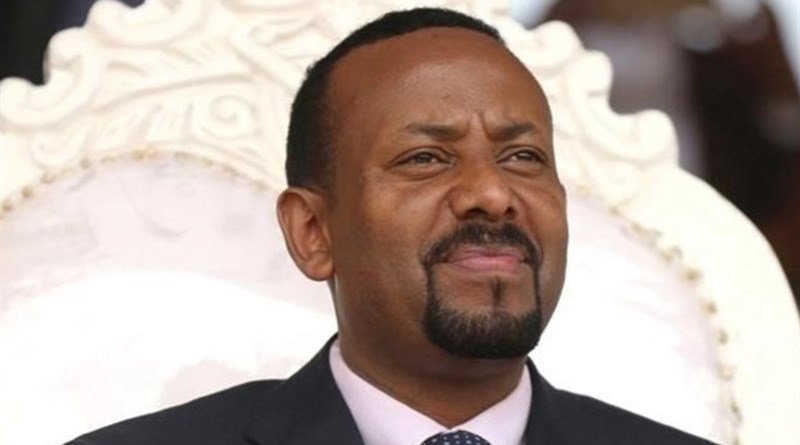Where Ethiopians Have Lost, Abiy Ahmed Has Won – OpEd
By Julian McBride
Over the past two years, Ethiopia has been ravaged by ethnic violence and cleansing, near endless war, and a country collapsing on sectarian lines akin to Lebanon in the 70s and Yugoslavia in the 90s. The war in Ethiopia is a war in which none of the major players are better off than where they stood before. The northernmost regions, such as Tigray, Afar, and Amhara lay desolate with billions of dollars in damage and even regions such as Oromia suffer from brutal sectarian violence by extremist groups. The only person who has benefited from the plight of Ethiopia is the current leader, Abiy Ahmed, who now has consolidated power as his rivals fight each other to the death.
The war in Ethiopia started on November 4th 2020, when the TPLF’s armed wing, the TDF attacked the Northern Command of the central Ethiopian government. The TPLF, who ruled Ethiopia for close to three decades after they expelled the communist Mengistu Regime, led the country during a period of just as much corruption, suppression of freedom of speech, and costly military ventures as their predecessor. Abiy Ahmed, a former Lt Col with combat experience in the Horn of Africa and Rwanda, mobilized the northern forces and Eritrean military, as the country to this day still shares close cultural ties with Ethiopia and also faced border incursions by the TPLF. Abiy Ahmed received the Nobel Peace Prize for settling decades-long major border disputes with Eritrea. After arresting high-value TPLF leaders and OLA extremists during the early phases of the war, Abiy’s popularity soared; meanwhile, there were needs of the country that were not met or implemented under his rule, that would later cost tens of thousands of lives and valuable resources.
Abiy Ahmed has ordered scorched-earth tactics to deal with TPLF militias, but in return, hundreds of thousands of Tigrayans have suffered. Reports of sexual assault, massacres from the ENDF, arrests of civil activists, growing famine due to the blockade by the government and Eritrea, and bombing of refugee camps have been reported since the start of the conflict.
As government forces became encircled and thousands were taken prisoners by the TPLF militias, they pushed south with goals of entering the capital of Addis Ababa. To do this, they would have to go through the Amhara region, which reignited longstanding ethnic tensions dating back to the 70s. For close to six months from June 2021, there were numerous reports of TPLF forces executing and sexually assaulting Amharas and Afars, along with cultural damage during the occupation.
Announcing a major government counteroffensive in lieu of TPLF and OLA advances towards the capital, Abiy’s popularity skyrocketed. The counteroffensive took place in the Amhara region, where many Amharas already held a negative view of the Abiy government. For months, the Amhara Special Forces and Fano held off TPLF forces with little government support. Many weapons the Amhara militias used came from dead TPLF soldiers or older weaponry from households as the government had not supplied them and refused to arm them. The counteroffensive in the Amhara region was successful, but came with its own controversy. Numerous reports of war crimes by fleeing TPLF forces were documented along with indiscriminate drone strikes by the Ethiopia government. The drone used were infamous TB2s, a Turkish produced Bayraktar that has changed the face of warfare in Syria, Libya, and Karabakh.
After consolidating the Amhara and Afar regions during the reconquest, Abiy Ahmed developed a cult of personality, despite continuous ongoing issues in the country. There have been near daily massacres of Amhara in the Oromia region, Abiy’s backyard, with little attention given. Tigrayans still lack adequate medical aid. The Afar regions still suffer from cross regional attacks by the TPLF and the Amhara region still requires billions in aid to help rebuild the war-battered province. There have also been mass arrests of Amhara activists recently, which led to global protests with the hashtag #IAmFano. Though Abiy has gained prominence around the African and “anti-imperialist” community, much of the Ethiopian population is very wary of his motives and intentions.
Despite the detentions of activists across the country and a media blackout, there is little progress or prominence for democratic institutions under PM Ahmed, along with growing homelessness and inflation. The only sign of progress is the Grand Ethiopian Renaissance Dam (GERD), which itself has caused major ire with Egypt. As international monitors and local journalists continue to count the dead from the civil war, it remains clear that no side has won. The status quo has remained, which reflects the scars of the mid-70s period, where the only winners are the corrupted leaders of post-monarchy Ethiopia, who continue to benefit while the people suffer.
The views expressed in this article belong to the authors alone and do not necessarily reflect those of Geopoliticalmonitor.com


Timing and facts matters